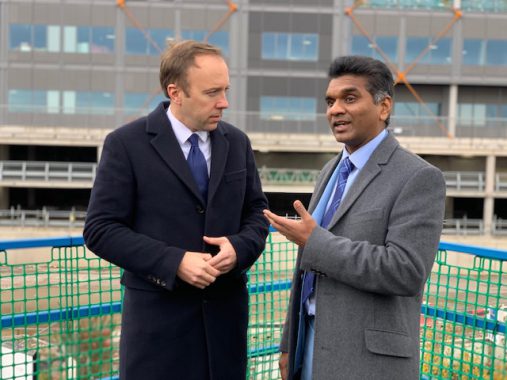I started my active political journey a year ago when I decided to stand as a councillor for Stoke on Trent City Council.
I’ve always recognised how important it is to engage in politics, joining North Staffs LMC in 2010 and the GPC in 2012.
Every year since, I’ve been elected to the GPC, either through the BMA, ARM, or LMC, and am inspired by Dr Chaand Nagpaul and Dr Richard Vautrey, who provide excellent leadership and support diverse thinking.
Last October, I was talking to my local Conservative councillor Dan Jellyman about the May 2019 Stoke City Council elections, and he asked me to stand.
Reflecting on my GP consultations, I estimated that at least 15% of mine are related to social reasons, so I applied to stand to serve residents both as a doctor and councillor.
I chose the Goldenhill and Sandyford ward, as I’ve been a GP there since 2007. The ward has traditionally elected a Labour councillor, and I was told by my GP colleagues that I had no chance.
The Labour Party selected the local MP’s mother as their candidate for the ward, and I’m proud that I was elected with 27% majority – showing that people trust their doctor (probably more than a politician)!
As a councillor, I enjoy working for people and solving real issues, and, interestingly, liken my political surgeries to medical surgeries. Within five months, I received excellent feedback by people who tell me they’ve never seen a councillor working so hard for them – giving me the push to stand for Parliament.
I enjoyed the comprehensive Conservative Party assessment process, which includes a public speaking exercise; group dynamics exercise; interview with two MPs and an essay-writing exam. I’m told it’s a tough task, but passed in my first attempt.
I passionately believe the new Government is committed to the NHS – I certainly don’t believe the ‘privatisation’ rhetoric
I was asked to apply to partake in the selection processes for both my local Stoke on Trent seats and neighbouring Black Country seats. My preference was to stay local, but as the Stoke on Trent seat was a key Conservative target, the members chose Jo Gideon as their candidate, as she has previous experience of standing in General Elections.
When the General Election was announced, I applied for the Black Country seats and was shortlisted for three Sandwell seats. I was delighted that in my first attempt, the local association voted unanimously for me, for the Warley seat. I had 34 days in a constituency that has had the same Labour MP for 30 years and a 16,400 majority.
I took the challenge to gain experience of standing in General Elections, campaigning in Warley every day – leafleting, door-knocking and speaking to communities in local meetings. I supported the other two Sandwell seats more than my seat, as they’re winnable seats for the party.
I recognised that many senior BMA colleagues and local GP friends are supportive of other parties, and received lot of criticism from colleagues who seemed to distrust my motivations.
The Labour Party clearly ran a campaign to make the NHS a political issue, but of course there were doctors and NHS staff standing for all the major parties – all determined to promote the NHS.
I’m a proud Conservative and I believe the party supports anyone to achieve their goals, irrespective of their backgrounds. I passionately believe the new Government is committed to the NHS – I certainly don’t believe the ‘privatisation’ rhetoric and am confident that time will prove me right.
I learned a lot during the election campaign, and I was proud to support my colleagues to be elected in all the Stoke on Trent seats and both the West Bromwich seats, for the first time in many years.
Speaking to hundreds of people in the campaign makes you understand their real problems and how they want a politician to help them – I then reduced the majority in the Warley constituency by 5,000.
I know many doctors who are interested in politics don’t see the benefits of engaging in mainstream politics, but would urge them to consider standing in local and general elections, as we need more doctors in influential positions to make a difference to our profession and patients.
Political views are drawn from people’s every-day life experiences, which vary vastly. We are likely to disagree about our fundamental political beliefs, but as doctors are committed to supporting individuals and communities; working to find solutions; and being caring and compassionate. These aims are also needed in our politics.
Dr Chandra Kanneganti is a GP in Stoke-on-Trent, GPC committee policy lead on NHS England, chair of the British International Doctors Association, chair of the North Staffs GP federation and clinical lead for GP Health in the North Midlands
Pulse October survey
Take our July 2025 survey to potentially win £1.000 worth of tokens













